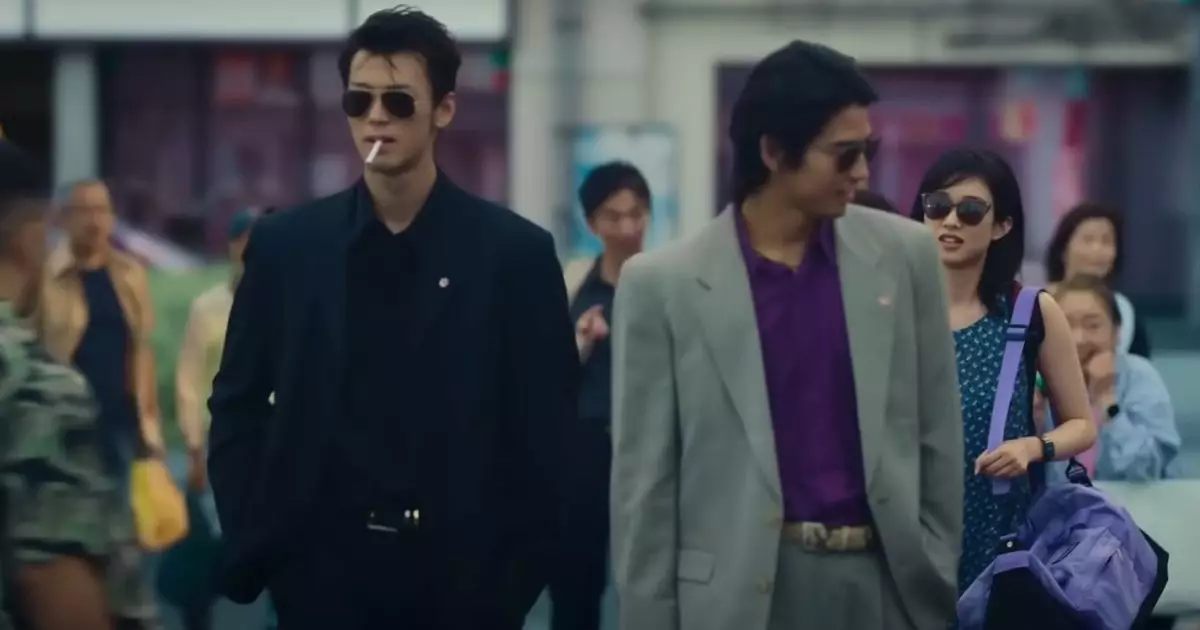As anticipation builds for the upcoming Like A Dragon: Yakuza TV series on Amazon, fans of the original video games find themselves grappling with a mix of hopeful excitement and cautious skepticism. The prospect of translating the unique absurdity and depth of the Yakuza franchise from a gaming context to a television format presents both challenges and opportunities. The recently released trailer provokes thought and discussion on how faithfully the show might encapsulate the essence of its source material while carving its own unique narrative.
Unlike the often whimsical and eccentric escapades in the video games, the trailer suggests a more grounded and serious narrative direction. This shift is promising but also troubling. The true charm of Yakuza lies in its balance of over-the-top action, heartfelt stories, and bizarre side characters that often serve to enrich the protagonist’s journey. The absence of these whimsical elements, as hinted in the trailer, leads to questions surrounding the show’s authenticity. Will it be able to fully express the emotional range that embodies Kiryu’s character or the Purgatory-like exploration of life in Kamurocho?
The trailer kicks off with a flashback featuring a young Kiryu witnessing an intense moment of violence, setting a tone of immediacy. However, while the brutality may appeal to action enthusiasts, it remains to be seen whether the show can effectively transition from mere violence to the emotional stakes that drive Kiryu. The storyline will delve into Kiryu’s youth alongside his friends Nishiki, Yumi, and Miho as they embark on a heist, but one has to wonder: will audiences connect with these characters when the weight of their rich backstories lacks the comedic levity present in the games?
The show’s official synopsis indicates that a pivotal plot point involves Kiryu’s return from prison in 2005 to find his friends entangled in serious predicaments amidst power struggles between rival yakuza clans. This framing of the characters’ relationships elicits nostalgia, coaxing long-time fans into the narrative. But will this nostalgia be a double-edged sword? The emotional currents shared between characters like Kiryu and Nishiki, who experienced a brotherly bond that crumbled over time, are essential to understanding the stakes. Achieving the right emotional depth will be critical, as the friendships that face dissolution or betrayal fuel the show’s tension.
Additionally, one cannot overlook the broader thematic implications tied to the narrative. Traditional yakuza tales often explore concepts such as honor, loyalty, and the burdens of choice in a tumultuous world. The show’s ability to mirror these themes could be a linchpin for its success. Still, it risks becoming too engulfed in the drama if it strays too far from the absurdities that offer a holistic narrative experience. A healthy balance is crucial; too much grit could alienate the very fan base that has come to appreciate Yakuza’s unique tonal palette.
A significant question looms over the adaptation— can the richness of Yakuza’s storytelling be precisely captured in a more form-fitted television format? Numerous iconic moments from the games provide a smorgasbord of quirky narratives that propel Kiryu’s adventures, yet many of these won’t seamlessly translate to the screen. The absence of significant and absurd encounters, such as the eccentric subplots featuring oddball characters, raises concerns about whether the series will feel authentic to die-hard fans.
While the show has an undeniable opportunity to introduce the larger audience to the emotional core of the Yakuza universe, this undertaking necessitates an understanding of what made the original game series resonate. By integrating both poignant human experiences and comical interludes, the adaptation can craft a truly immersive world. However, the potential pitfalls lie in ignoring the multifaceted narrative layers that already exist.
The Like A Dragon: Yakuza TV show offers a promising venture into the world of live-action adaptation. But, it requires a careful hands-on approach to balance both tone and substance to resonate effectively with audiences old and new. The key is to encapsulate the spirit of Yakuza while exploring new narrativistic avenues. Whether it succeeds or falters remains to be seen, but one can only hope that it captures the heart of what makes the series singularly engaging.


Leave a Reply